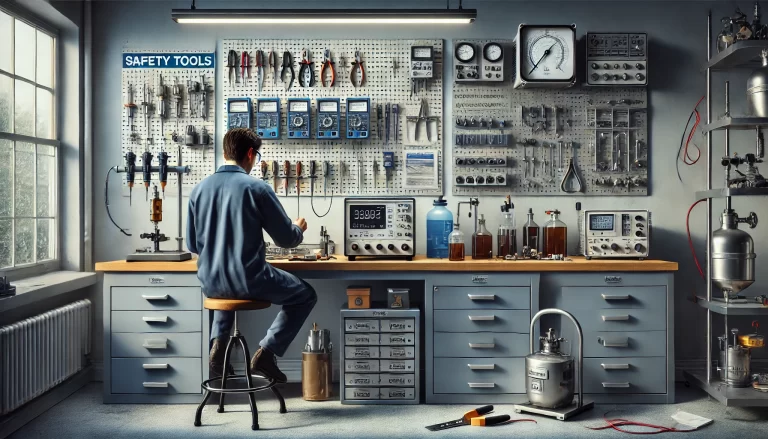In industrial environments—especially in sectors such as petrochemicals, pharmaceuticals, power generation, and manufacturing—instrumentation technicians play a crucial role in ensuring accurate measurement, control, and automation. However, beyond technical skills, there are regulatory and safety compliance requirements that technicians must meet. Two of the most important qualifications in this context are the Low Voltage Electrical Operation Certificate and the Explosion-Proof Electrical Certificate.
This article explores whether these certifications are necessary, when they are required, and how they apply to typical job scenarios in instrumentation work.

1. Low Voltage Electrical Operation Certificate
✅ Is it required?
Yes – Mandatory in most cases.
✅ Regulatory Basis:
In China, this certificate is issued under the framework of the Special Operations Permit System, regulated by the State Administration of Work Safety. According to relevant national safety guidelines, any personnel involved in low-voltage electrical installation, maintenance, or operation must hold this certification.
✅ Why Instrument Technicians Need It:
Most instrumentation systems include electrical components such as signal lines (4–20 mA loops), power supplies for transmitters, and controller wiring.
Tasks like installing or troubleshooting temperature transmitters, pressure sensors, and PLC input/output modules inherently involve electrical operations.
Even low-voltage circuits (below 1000V AC or 1500V DC) pose risks of shock or fire if improperly handled.
✅ Key Job Scenarios:
| Scenario | Is Certificate Required? |
|---|---|
| Installing or wiring a pressure transmitter | ✅ Yes |
| Troubleshooting a loop-powered device | ✅ Yes |
| Connecting an instrument to a power supply | ✅ Yes |

2. Explosion-Proof Electrical Certificate
✅ Is it required?
Yes – Required in hazardous areas.
✅ Applicable Industries:
Petrochemical plants
LNG and natural gas facilities
Refining and chemical processing plants
Pharmaceutical production with flammable solvents
✅ Why It Matters:
Explosion-proof equipment is commonly used in zones where flammable gases or dust are present. Instrumentation technicians working in such zones must understand the principles of explosion protection (Ex d, Ex ia, etc.), proper cable sealing techniques, and how to verify that explosion-proof enclosures are correctly installed.
✅ When Certification is Needed:
| Work Scenario | Is Certificate Required? |
|---|---|
| Installing a pressure transmitter in Zone 1 | ✅ Yes |
| Repairing a radar level meter in Zone 2 | ✅ Yes |
| Calibrating sensors in a non-hazardous area | ❌ No |
✅ What the Certificate Covers:
Understanding hazardous area classifications (Zones 0, 1, 2)
Familiarity with explosion-proof equipment markings
Installation and maintenance best practices
Ensuring electrical connections do not pose ignition risks

3. Other Recommended Certifications
While not always mandatory, the following certifications enhance safety and employability:
| Certificate | Use Case |
|---|---|
| High-Altitude Operations Permit | For installation work at height (e.g., tank level transmitters) |
| Internal Company Instrument Calibration Certificate | Required for specific site calibration tasks |
| Welding Certificate | Occasionally needed for mounting sensor fittings in pipework |
4. Summary Table: Certification Requirements for Instrumentation Technicians
| Certificate Name | Legally Required? | Recommended? | Typical Usage Scenario |
|---|---|---|---|
| Low Voltage Electrical Certificate | ✅ Yes | ✅ Essential | All electrical wiring, signal testing, power connection |
| Explosion-Proof Electrical Certificate | ✅ Yes (in hazardous areas) | ✅ Recommended | Any work in explosive atmospheres (Zone 0/1/2) |
| High-Altitude Work Permit | ❌ Situational | ✅ Optional | Installing instruments in elevated locations |
| Internal Calibration/Testing Training | ❌ No | ✅ Often | Device calibration and commissioning |

5. Final Thoughts
To ensure safety, regulatory compliance, and technical competence, instrumentation technicians should be equipped not only with practical skills but also with the proper certifications. For companies, enforcing these certification requirements is not only a legal obligation—it is also a critical step toward preventing accidents, equipment damage, and downtime.
If you’re an instrumentation engineer or technical manager responsible for team training or project deployment in hazardous areas, make sure that your personnel have obtained these essential certifications before they set foot on the job site.
